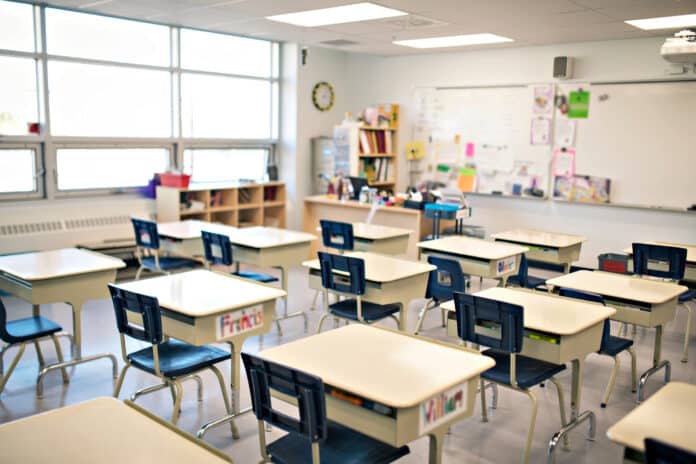
Schools districts across the state are projecting substantial budget deficits for the next school year.
According to a survey released last month by the Association of Metropolitan School Districts (AMSD), 70 percent of its member districts are projecting deficits for the 2024-25 school year, for a combined projected shortfall of $317 million.
One district alone, St. Paul Public Schools, is facing a $107 million shortfall for fiscal year 2025, according to AMSD. The district said in an update last week that it still needs to identify about $20 million in budget cuts to balance its budget.
Minneapolis Public Schools, meanwhile, was in a $90 million hole as of early March when AMSD asked its members to self-report “the gap between their anticipated revenue and expenditures for the 2024-25 school year assuming no additional funding is provided in the 2024 legislative session.” The deficit has reportedly grown to well over $100 million since the survey was conducted.
The Anoka-Hennepin School District, the state’s largest, said at the time of the survey that it is looking at a $24 million deficit.
“We will have to consider all options, including using fund balance, administrative cuts, program cuts, and staff layoffs,” said Anoka-Hennepin Superintendent Cory McIntyre in a press release.
“Budget reductions and realignment have already started with central office personnel and program reductions effective June 30, 2024, impacting the 2024-25 school year budget. This will reduce administrative support by approximately 45 positions — equal to a $5 million reduction of the potential $30 million needing to be reduced. These adjustments aim to lower the impact of reductions at school sites for the 2024-25 school year.”
Edina Public Schools, facing a $3.6 million shortfall, recently voted to take out an $800,000 loan to fill the gap. Rochester Public Schools is facing a $9 million deficit despite a $10 million gift from Mayo Clinic. Duluth Public Schools reported a $6 million shortfall.
“Survey results of metropolitan school districts in Minnesota released today show that Rochester Public Schools (RPS) is not alone in facing a major budget deficit for the 2024-2025 school year. RPS has cut more than $20 million from the budget over the past two years to put the District on a path to financial stability,” Rochester Superintendent Kent Pekel said in a message to families last month.
AMSD blamed the widespread shortfalls on a variety of factors, including “historic inflation and staffing shortages,” an end to pandemic-era funding, and new underfunded or unfunded mandates passed during the 2023 legislative session. Enrollment declines also directly impact how much money districts receive from the state.
According to a February report from The 74, half of the “historic” $2.2 billion in new funding passed by Democrats during the 2023 session was tied to 65 new mandates.
“Turns out, despite spending increases, $2 billion in ‘new’ state aid doesn’t go very far when it comes with lots of strings,” Catrin Wigfall, a policy fellow focused on education at the Center of the American Experiment, wrote in an article.
“These mandates include requiring schools to stock menstrual products in boys’ bathrooms, provide free meals for all students, which could impact compensatory revenue, and allow seasonal hourly employees like bus drivers and cooks to participate in the unemployment insurance program. Not to mention the costs that will accompany all the new ethnic studies requirements,” she said.
In a March letter, several education associations urged legislators to “resist” including “new mandates” in this year’s omnibus education bill.
“As you know, last year’s omnibus education bill included historic new programs and expectations for our schools,” they wrote. “School boards, administrators, teachers, and other staff are working very hard to implement the new requirements and they need time to ensure the new programs are implemented successfully. These programs and expectations were accompanied by a significant number of new mandates.”















